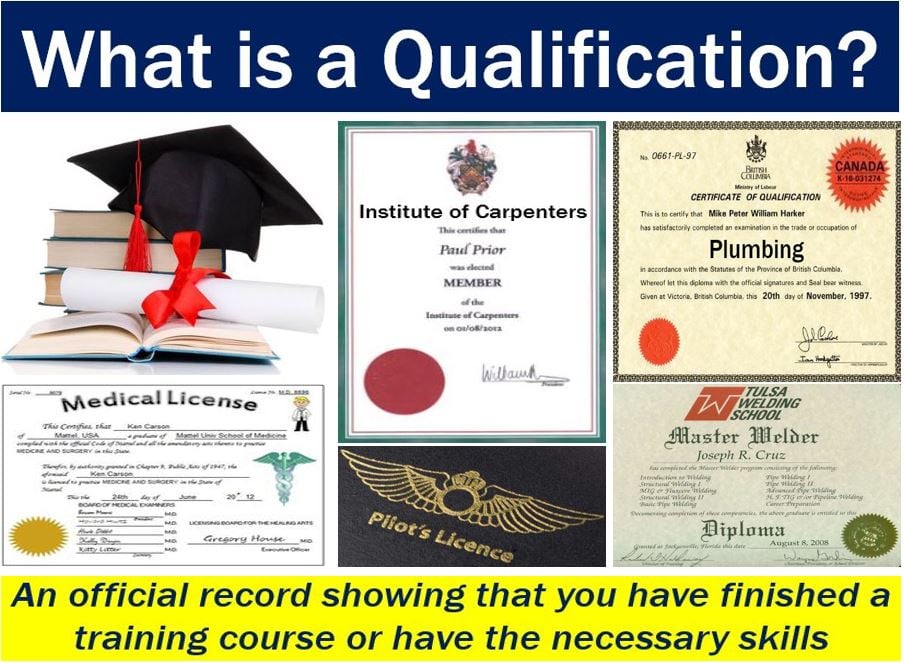Qualification is the knowledge, skill or capacity that makes a person suitable to take on a certain role. The role may be a position at work or an activity. It is a level of skill that a person must achieve so that they can do something.
When unemployment levels are high, qualifications matter more when you are looking for a job.
The word can also denote a meaning of success, a status that we must achieve to obtain a privilege.
For example, somebody may obtain a ‘Cambridge English Test’ as a qualification, to demonstrate a higher level skill in English and communication.
We sometimes use the term when we wish to assert something. For example, if I say “I welcome without qualification Mr. Brown’s statement,” it means I welcome it completely. In other words “I welcome it with no ‘ifs’ or ‘buts.'”
The term may also refer to success in getting through to compete in a tournament. For example “Australia’s win earned the team qualification for the World Cup finals.”
This article focuses on the meaning of the term when it refers to skills and knowledge for the job market.

Qualification for a job
When looking for a job, applicants with lots of qualifications have an advantage over less qualified individuals.
They have an advantage because their qualifications are an indication of superior knowledge and skills. This means they are suitable for a wider range of jobs. Specifically, jobs that pay good money.
However, having lots of qualifications does not always guarantee success or superior efficiency.
The word qualification originates directly from medieval Latin qualificationem, from the verb qualificare. According to etymologists, it first emerged in the English language in 1538.
Here is an example of the word in a sentence:
“John seemed like the most suitable candidate to join the team given his qualifications and expertise in the field.”
School leaving qualification
School leaving qualifications are academic qualifications that people receive when they complete high school.
Depending on the country, people may refer to it as a high school diploma or school certificate. People may also call it a senior certificate or certificate of education.
In some countries, you must have studied a foreign language to pass your school leaving qualification. Students also must have completed a certain number of years in secondary education.
In America, people refer to it as the High School Diploma. In England and Wales, is the the General Certificate of Secondary Education (GCSE). English and Welsh students take their GCSE exams at the age of 16, and their A levels at 18.
